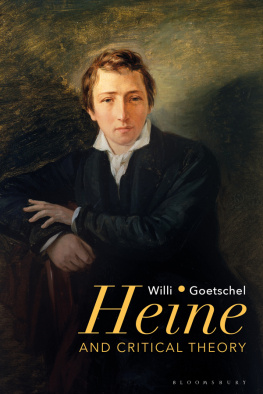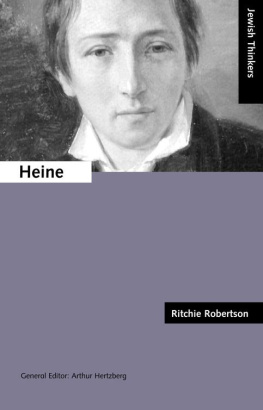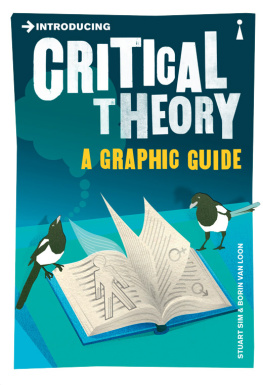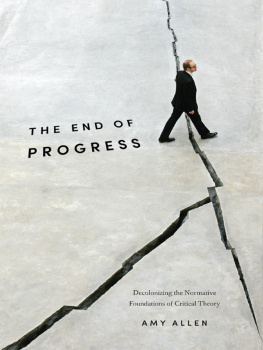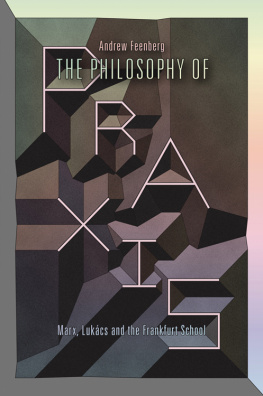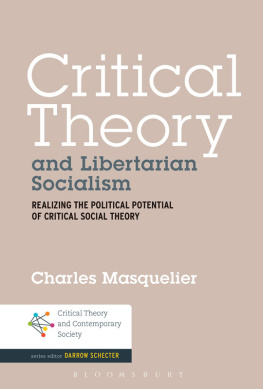ALSO AVAILABLE FROM BLOOMSBURY
Plato and Nietzsche, Mark Anderson
Foucault and Nietzsche, edited by Alan Rosenberg and Joseph Westfall
Inheriting Walter Benjamin, Gerhard Richter
Aesthetic Marx, edited by Samir Gandesha and Johan Hartle

BLOOMSBURY ACADEMIC
Bloomsbury Publishing Plc
50 Bedford Square, London, WC1B 3DP, UK
1385 Broadway, New York, NY 10018, USA
BLOOMSBURY, BLOOMSBURY ACADEMIC and the Diana logo are trademarks of Bloomsbury Publishing Plc
First published in Great Britain 2019
Copyright Willi Goetschel, 2019
Willi Goetschel has asserted his right under the Copyright, Designs and Patents Act, 1988, to be identified as Author of this work.
For legal purposes the constitute an extension of this copyright page.
Cover design by Maria Rajka
Cover image: Portrait of Heinrich Heine (17971856) 1831 (oil on paper on canvas), Oppenheim, Moritz Daniel (180082) / Hamburger Kunsthalle, Hamburg, Germany / Bridgeman Images
All rights reserved. No part of this publication may be reproduced or transmitted in any form or by any means, electronic or mechanical, including photocopying, recording, or any information storage or retrieval system, without prior permission in writing from the publishers.
Bloomsbury Publishing Plc does not have any control over, or responsibility for, any third-party websites referred to or in this book. All internet addresses given in this book were correct at the time of going to press. The author and publisher regret any inconvenience caused if addresses have changed or sites have ceased to exist, but can accept no responsibility for any such changes.
A catalogue record for this book is available from the British Library.
A catalog record for this book is available from the Library of Congress.
ISBN: HB: 978-1-3500-8729-3
ePDF: 978-1-3500-8726-2
eBook: 978-1-3500-8727-9
To find out more about our authors and books visit www.bloomsbury.com and sign up for our newsletters.
CONTENTS
| [... ] | texts in brackets have been added in quotes and translations. |
| B | Heinrich Heine, Smtliche Schriften, ed. Klaus Briegleb. Munich: Hanser, 2nd ed., 197585 and Munich: Deutscher Taschenbuchverlag, 1997. |
| D | Hal Draper, The Complete Poems of Heinrich Heine. Boston: Suhrkamp/Insel, 1982. |
| DHA | Heinrich Heine, Historisch-kritische Gesamtausgabe der Werke, ed. Manfred Windfuhr. Hamburg: Campe. 197397. |
| GS | Theodor W. Adorno, Gesammelte Schriften, ed. Rolf Tiedemann in collaboration with Gretel Adorno, Susan Buck-Morss, and Klaus Schultz. Frankfurt am Main: Suhrkamp, 197086. |
| GS | Walter Benjamin, Gesammelte Schriften, ed. Rolf Tiedemann and Hermann Schweppenhuser in collaboration with Theodor W. Adorno and Gershom Scholem. Frankfurt am Main: Suhrkamp, 197299. |
| HSA | Heinrich Heine, Skularausgabe, ed. Nationale Forschungs- und Gedenksttten der klassischen deutschen Literatur and Centre Nartionale de la Recherche Scientifique: Berlin and Paris, 1970. |
| KSA | Friedrich Nietzsche, Smtliche Werke: Kritische Studienausgabe, ed. Colli and Montinari. Berlin: Walter de Gruyter 196777 and Munich: Deutscher Taschenbuch Verlag, 1980. |
| KSB | Friedrich Nietzsche, Smtliche Briefe: Kritische Studienausgabe, ed. Giorgio Colli and Mazzino Montinari. Berlin and Munich: Walter de Gruyter 197584 and Deutscher Taschenbuch Verlag, 1986. |
| L | Heinrich Heine, The Works of Heinrich Heine, vol. 18, trans. Charles Godfrey Leland. London: Heinemann, 1906. |
| Marx, Selected Writings | Karl Marx, Selected Writings, ed. Lawrence H. Simon. Indianapolis and Cambridge: Hackett, 1994. |
| MEW | Karl Marx and Friedrich Engels, Werke, ed. Institut fr Marxismus-Leninismus beim ZK der SED. Berlin: Dietz, 195668. |
| ND | Theodor W. Adorno, Negative Dialectics, trans. E. B. Ashton. New York and London: Continuum, 2005. |
| OH | Heine, On the History of Philosophy and Religion and Other Writings, trans. Howard Pollack-Milgate, ed. Terry Pinkard. Cambridge Texts in the History of Philosophy. Cambridge: Cambridge University Press, 2007. |
| S | Heinrich Heine, Ludwig Brne: A Memorial, trans. Jeffrey Sammons. Rochester and Woodbridge, UK: Camden, 2006. |
| SA | Sigmund Freud, Studienausgabe. Frankfurt am Main: Fischer, 196975. |
| SE | Freud, Sigmund, The Standard Edition of the Complete Psychological Works of Sigmund Freud. London: Hogarth Press and the Institute of Psychoanalysis, 195374. |
All translations unless otherwise indicated are mine with the occasional assistance of John Koster.
To read what was never written can be a challenging task. Hugo von Hoffmannsthals enigmatically suggestive line gains particular salience when the blindness concerns the elephant in the room. Or a few elephants. For only death bound elephants travel alone. The others move together in formations or constellations similar to the movement of critical concerns whose freely roaming associations are not always easily compartmentalized.
Heine and his poignantly provocative writing represents the sort of elephant to which scholarshipand not just historians of Critical Theoryhave turned a blind eye. But avoiding the elephant has made the quarters only more cramped and led to the impediment of free critical movement that is Critical Theorys first and foremost concern. This is a concern that does not travel alone but moves in close association with questions such as Critical Theorys relationship to its various sources, including Jewish tradition, identity, and the German Jewish experience at home, abroad, and in exileissues that circle around the role of what can be called the role that Jewish difference plays in the Critical Theory of the Frankfurt School.
This book seeks to track the fundamental significance of these issues for a critical understanding of Critical Theory. It does so by attending to what I argue is a key link in the emergence of Critical Theory that helps rendering central issues legible that a selective scholarship has, over time, made hard to read, and so allows us to approach the question of the critical significance of Jewish difference unhampered by the disciplinary blindness that has marginalized Jewish Studies: with Jewish Studies, for its part, having assimilated the paradigm it once sought to challenge in the first place.
While it could be said that Critical Theory equals Heine without the humor, highlighting the critically reflective force that humor brings to the project of critique, Critical Theory can help track the critical thrust in Heine. To bring out this nexus, the book reads Heine with the Frankfurt School while highlighting the multiple reflections that Heine evokes in reading the Frankfurt School. But this is easier said then done. Exploring this relationship has become a project that commanded more time, more research, and more analysis than initially anticipatedbut in return it also yielded more than formerly expected. The journey of this book has been an experience that has lasted longer than anticipated and I owe thanks to all who so generously indulged me in what might have seemed an unending pursuit.

